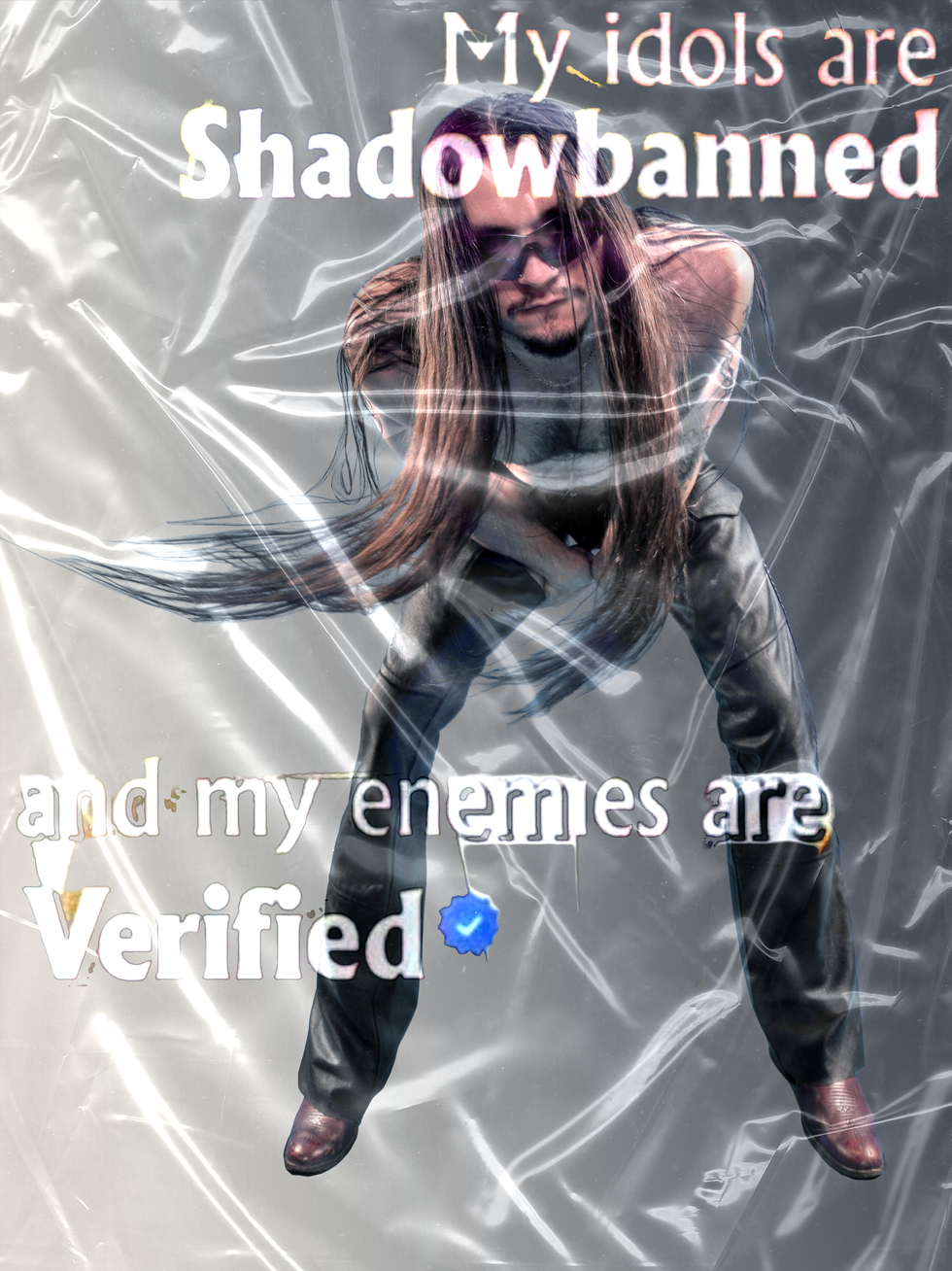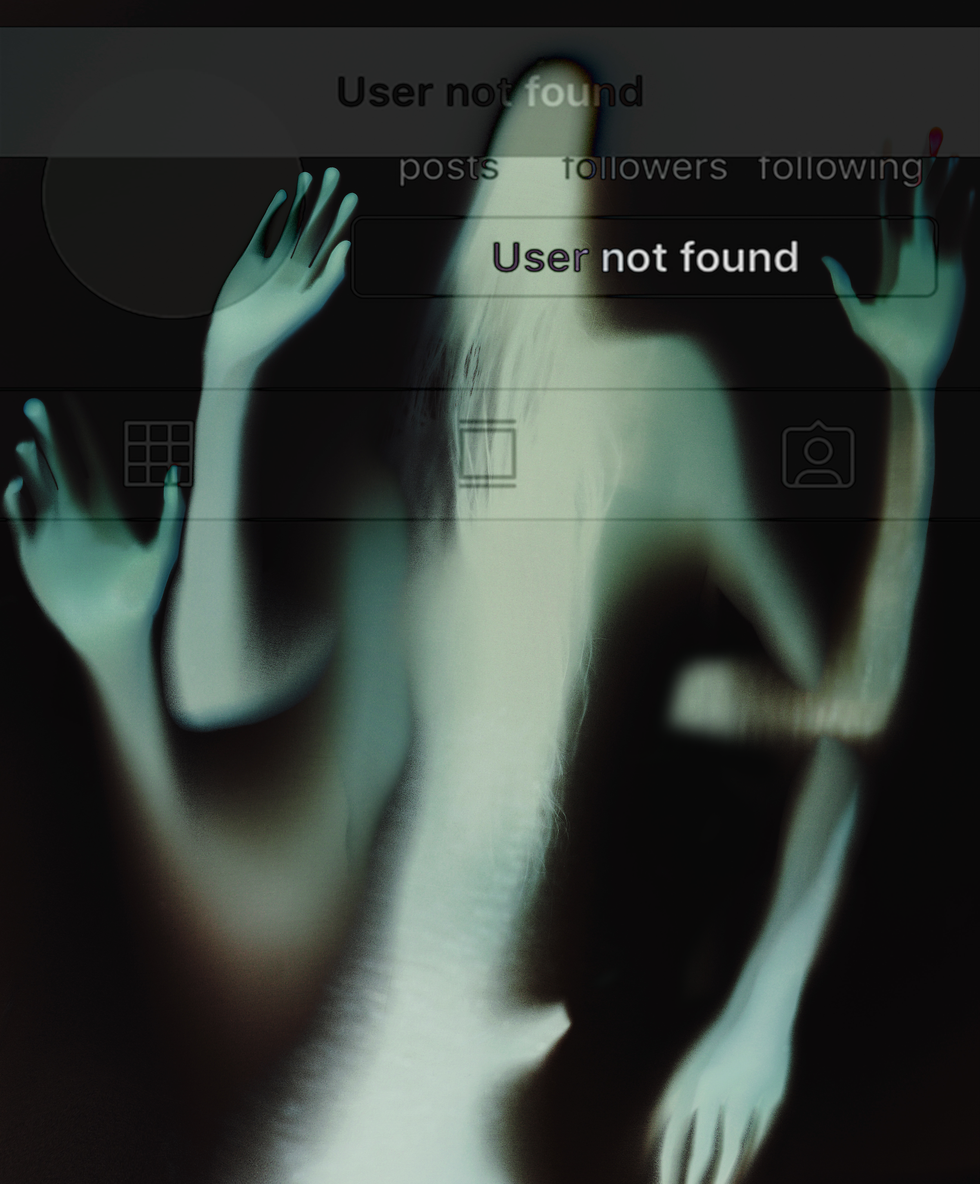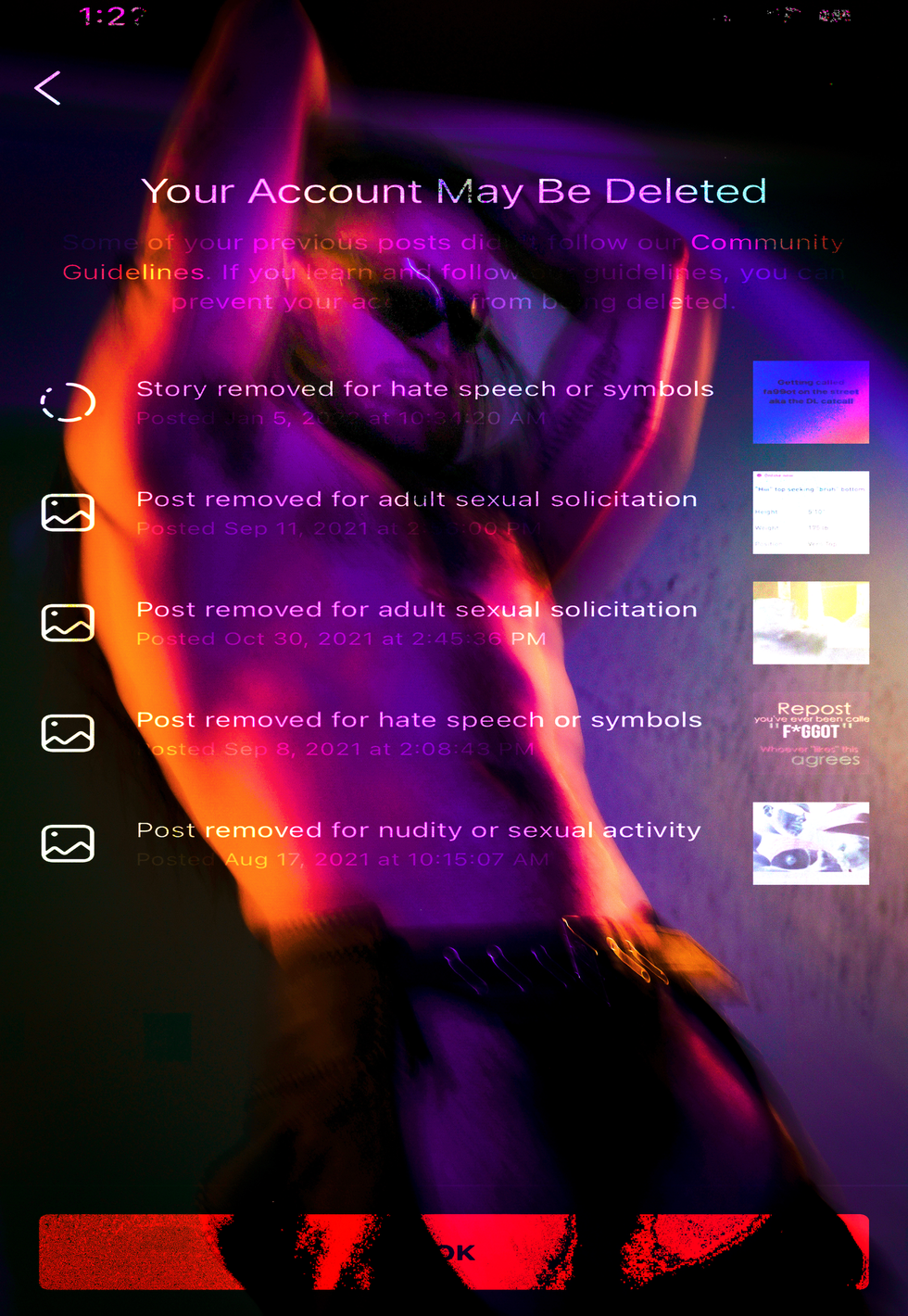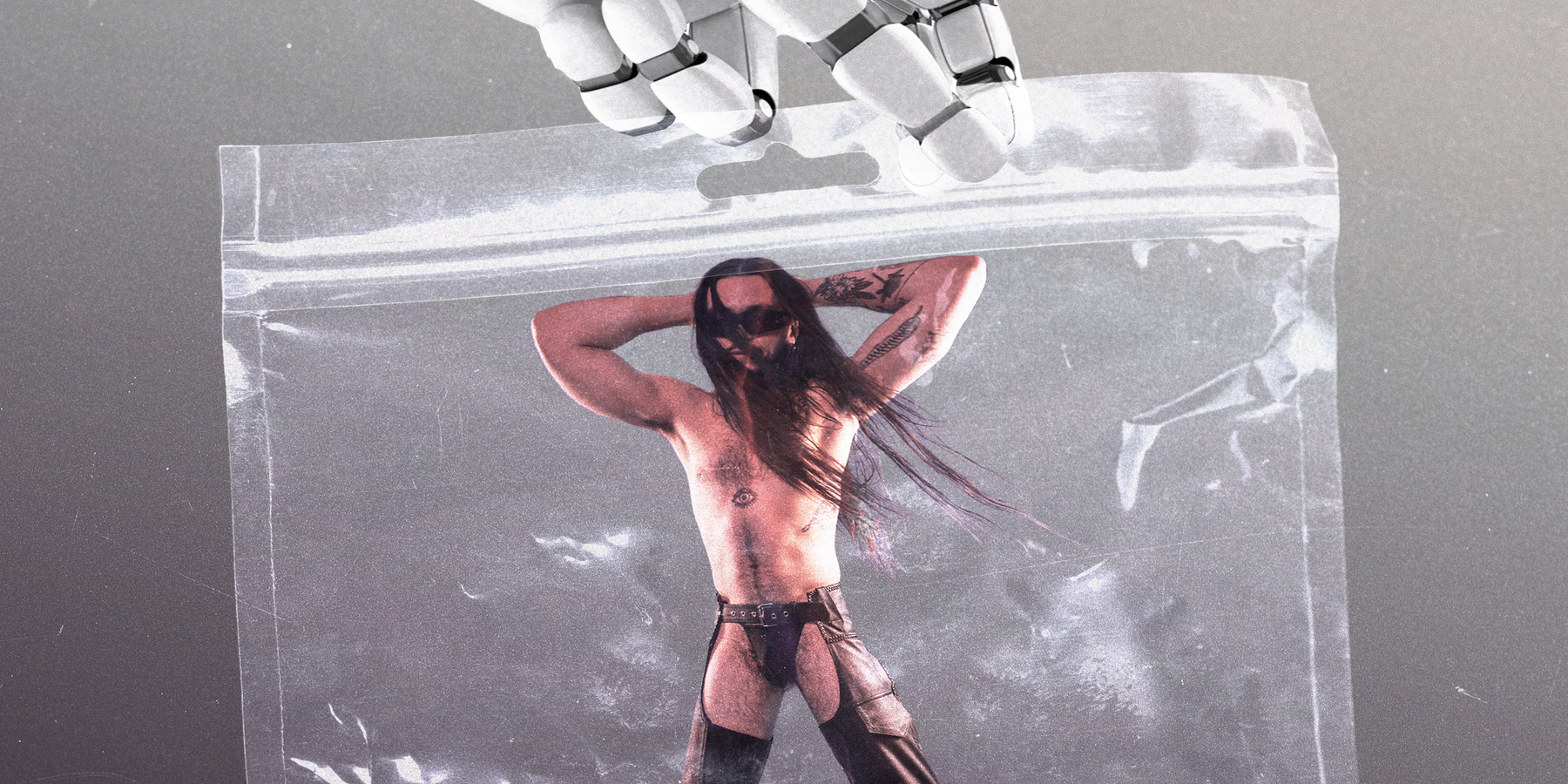
The queer community is no stranger to censorship, throughout history in physical spaces and now on the internet, where social media platforms have drawn their own lines at what’s considered acceptable content to post. Boyfriend.dick, the memer and artist formerly known as Goon Soul, responds to this suppression with his debut single, "Community Guidelines,” released through New York’s Sweat Equity record label.
During lockdown, Boyfriend.dick grew his personal finsta into a meme platform with a following of 60k; he eventually launched a Discord for queer folks around the world to stay connected and share everything from news to nudes, deepening his position as a center for online LGBTQ networking. Unfortunately, Boyfriend.dick’s original Instagram has been deplatformed, but he’s going strong with his fourth (and fifth, should number four get pulled down).
Related | SOPHIE's Whole New World
Like all his public accounts, which push the edge of social media policies, "Community Guidelines" is openly "h word" and heart-racing. Boyfriend.dick’s voice is pitched down, like an interviewee maintaining anonymity on TV, as he positions himself like a sub to a censorship dom: "Censor me, daddy," he says through distorted vocals. "Take away my phone... I’m your little bitch."
Underneath all the "I’m baby" and "Looking to get ‘f word’ harder" admissions is an explosive, metallic club track (for fans of SOPHIE’s 2018 anthem, "Ponyboy") that builds into Boyfriend.dick’s ultimate declaration: "You’d be nothing without me... I’m still your little slut." Below, PAPER talks to Boyfriend.dick about his searing breakout single and why social media is holding us all back.
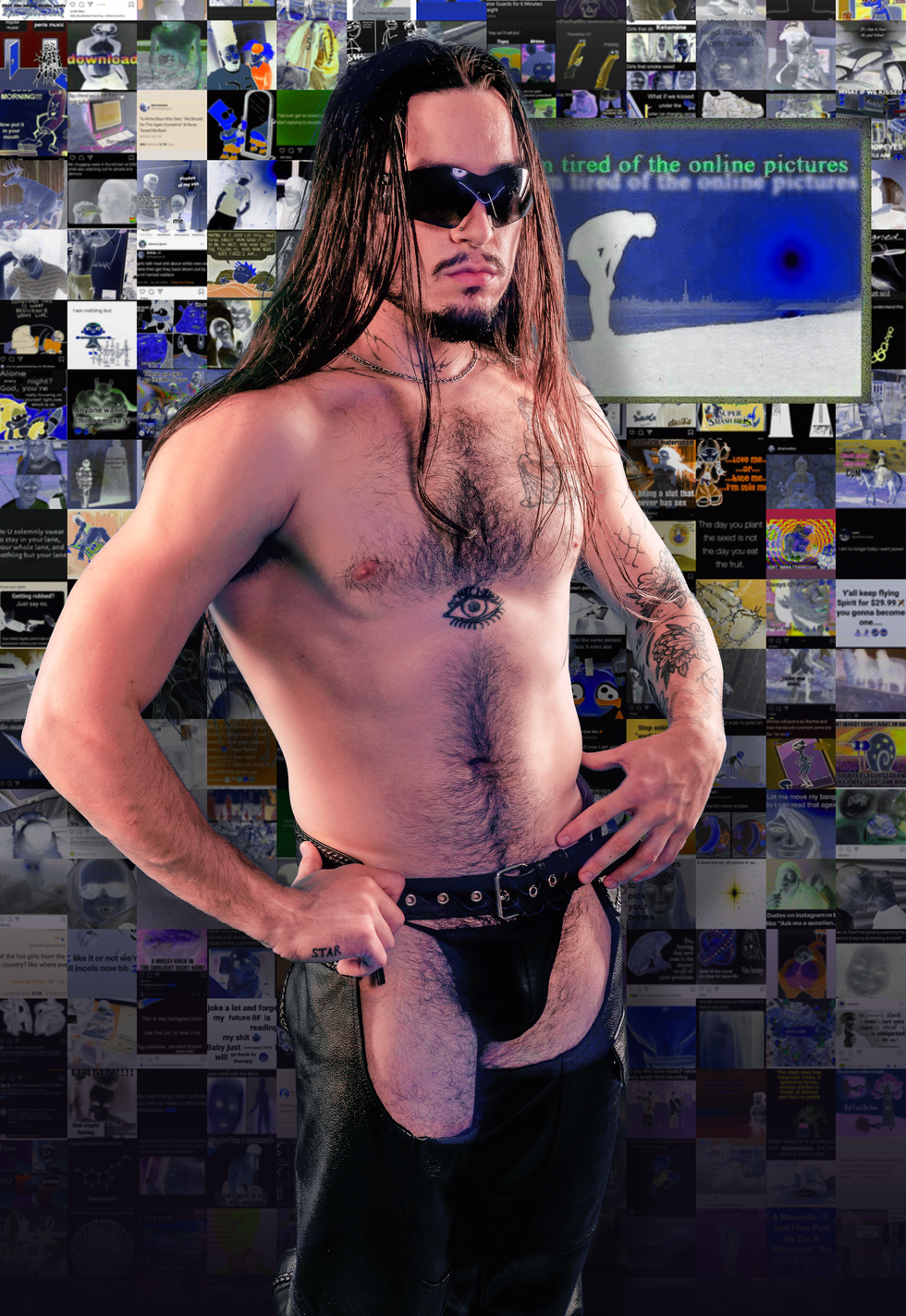
As your debut single under Boyfriend Dick, how do you think this reflects who you are as an artist now and where your music is going?
My art and music making process pre-pandemic was much more internally focused. Then in 2020, when my original meme page began to gain popularity (RIP @boyfriend.dick), I was inspired to connect my community in a more impactful way. This lead me to producing my own tarot deck, which uses internet culture to build its archetypal language (The influencer, the troll, the shadow ban, just to name a few cards).
Around that time, I also began my Discord server, where me and other queers could post memes and nudes without fear of being censored or deleted by the algorithm. In 2021, I started DJing. Being immersed in dance music and curation shifted the focus of my sound and how I thought about making music. With "Community Guidelines," I wanted to bridge all of the ideas that I had already been working with: Music, queerness, memes, censorship, community, rave culture.
From a production and lyrical point-of-view, who’d you work on this song with? What did that collaborative process look like?
I wrote and produced the song myself from an idea I had about "bottoming for the community guidelines." I thought about the power in submission and how control can take many forms. My friend and iconic artist, Macy Rodman, connected with the Brooklyn alternative-dance label Sweat Equity. Andrew Nerviano mastered the track and made it hit even harder, and Dan (Alien D) helped with the vision and planning of the release. I don’t want to say who’s involved yet, but I will say that there is a really fab remix in the works with some of my favorite DJs.
How do you think this track is a reflection of extremely online queer culture, right now?
For as long as I’ve been queer online, I’ve had to find ways around the rules in order to accurately represent myself. This track is about manipulating the algorithm and using the tools of big corporations against them in order to subvert and queer online spaces. I know that my work and my life will always be censored online, so I’ve just had to figure out how to find my power in that. In a way, I’ve turned censorship into my aesthetic.
As artists, creators, sex workers or even just queer people living our lives and expressing ourselves, we’re subjected to the morality of these big corporations whose goal is not to facilitate the authentic expression of our community, but to make as much money as possible. This specifically targets queer people, with an even greater impact on Black and trans folks, many of whom rely on their platforms for income.
How do you think that culture compares to a history of censorship in the LGBTQ community? What’re the parallels and differences between that offline experience and now online?
I feel like the nature of being queer is a challenge to oppressive systems, while we mostly have no other option but to work within them. Queers have always been pushed to the fringes and we’ve flourished there. Now that online social power is so centralized, it can be harder to find the fringes because the algorithms are always watching. I don’t know exactly how it has changed, but I feel like I’m continuing a legacy of my queer ancestors who paved the way for me to even be here and have this platform.
Why is it important for queer people to actively break rules in this way and create their own space? Why is it important to you?
Many of us don’t have a choice, it’s our lives. The rules are just money making tools that are only real in their consequences, and frankly their financial impact on artists and sex workers. It’s important to me because I see the impact on my community. I see the ways that the platforms we use hold us back from flourishing on our own terms. Anything I can do to challenge that is a win for me.
Photography: Jahmali Brown
Editing: Boyfriend.dick
